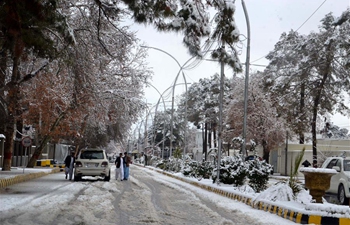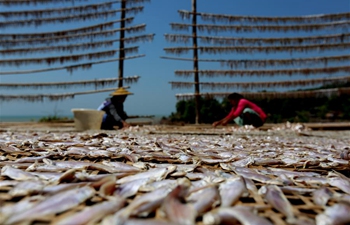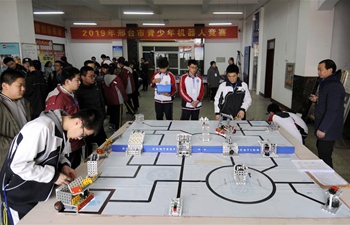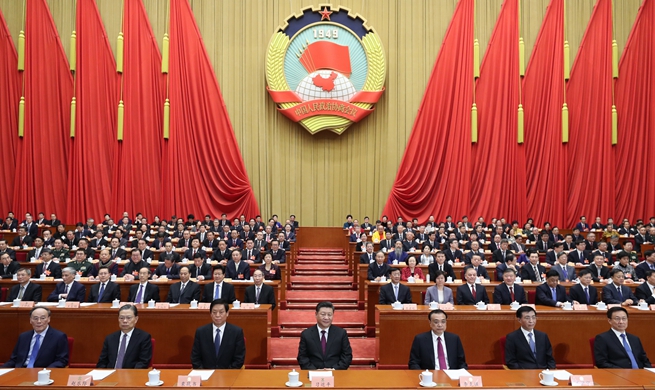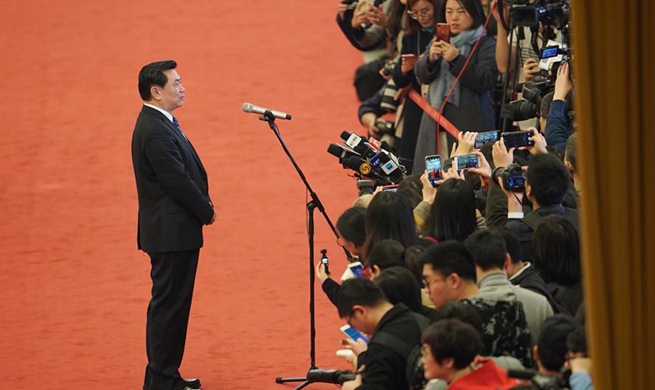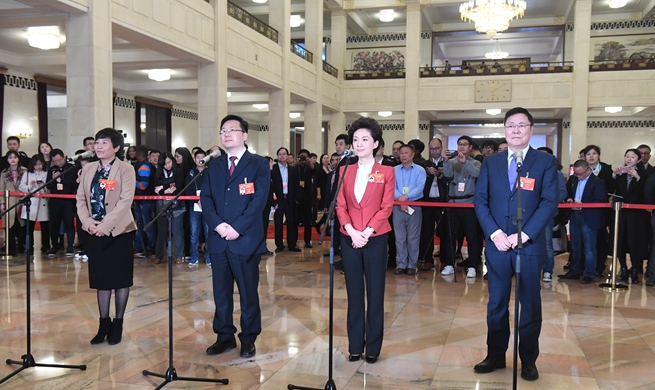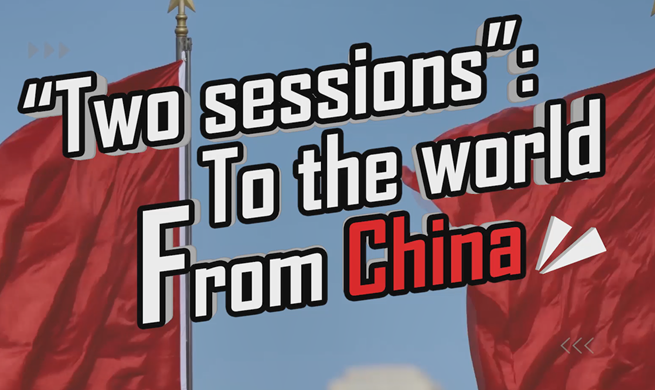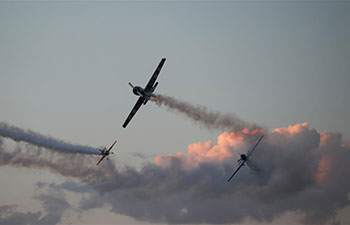ADEN, Yemen, March 3 (Xinhua) -- Forces loyal to the Saudi-backed Yemeni government clashed with fighters of the Houthi group in the Red Sea port city of Hodeidah on Sunday, an army officer told Xinhua.
"Intense clashes broke out between the government forces and the Houthi fighters in the eastern neighborhoods of Hodeidah," the Hodeidah-based army officer said on condition of anonymity.
The government forces captured seven Houthi fighters and destroyed a number of military vehicles belonging to the rebel group during the clashes, the source added.
Other Yemeni government officials said the clashes were sparked by the sporadic shelling of the Houthi rebels on the government-controlled sites despite the UN-brokered cease-fire in Hodeidah.
Casualties were caused by the clashes, they added.
Houthi media, however, reported that the government forces backed by the Saudi-led coalition launched heavy artillery shelling against Kilo 16 neighborhood and other areas in Hodeidah.
The military escalation came after the two warring rivals continually traded accusations of breaching the UN-brokered cease-fire deal.
Earlier in the day, British Foreign Secretary Jeremy Hunt visited Aden, which is the first time that a Western foreign minister has travelled to war-torn Yemen since the start of the conflict in 2015.
In a display of Britain's support for the Yemeni government and the UN efforts to secure peace, Hunt met with Yemeni Deputy Prime Minister Ahmed Saeed Khanbashi and Foreign Minister Khaled Yamani at the presidential compound.
"The process could be dead within weeks if we do not see both sides sticking to their commitments in Stockholm," he said in Aden through a short video posted on Twitter.
The Yemeni warring parties reached the peace deal in Stockholm last December. Despite sporadic attacks, they have largely held the cease-fire in Hodeidah since it went into force on Dec. 18, 2018.
However, both sides have since delayed the implementation of withdrawing forces for several times.
According to the deal, the mutual withdrawal should be carried out in two phases starting from the ports of Ras Isa, Saleef and Hodeidah, which are all under the Houthi control, and concluding with full withdrawal from inside and around the city.
Saudi Arabia is leading an Arab military coalition that intervened in Yemen in March 2015 to support the government of President Abdu-Rabbu Mansour Hadi after Houthi rebels forced him into exile and seized much of the country's north, including the capital Sanaa and Hodeidah.
The four-year civil war has killed more than 10,000 people, mostly civilians, displaced 3 million others, and pushed the country to the brink of famine.




